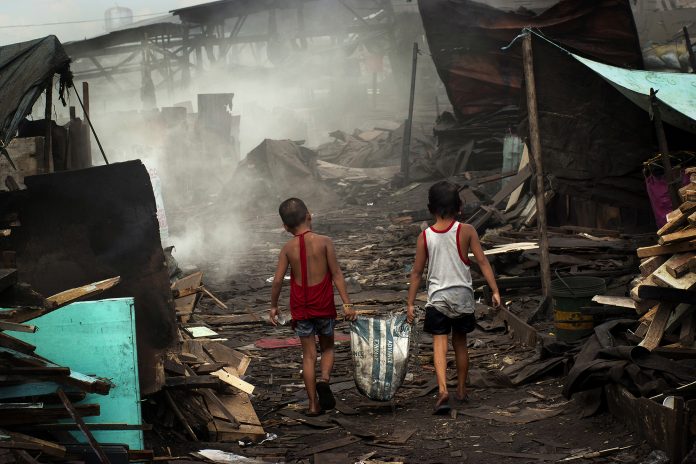The Philippines needs to invest more in programs tackling childhood undernutrition to eliminate what is long considered a “silent pandemic” afflicting many of the country’s poor and vulnerable population.
A study released by the World Bank on Tuesday, June 15, said childhood stunting – characterized by prolonged nutritional deficiency among infants and young children– is considered one of the most serious but least-addressed problems in the world.
The study titled “Undernutrition in the Philippines: Scale, Scope and Opportunities for Nutrition Policy and Programming” noted that “stunting” is an even more pressing issue in the Philippines.
It said that about 30 percent of children under 5 years of age are stunted – considered high for its level of income and high compared to most of its neighbors.
Other countries with similar levels of income have rates of stunting averaging about 20 percent of children under 5 years of age.
The Philippines’ rate of stunting places it fifth among countries in the East Asia and the Pacific region with the highest stunting prevalence, and among the top ten countries globally with the highest number of stunted children.
Ndiamé Diop, World Bank country director for Brunei, Malaysia, Philippines, and Thailand said undernutrition is a critical issue hampering the Philippines’ human and economic development.
“Undernourished children tend to be sickly, learn less, more likely to drop out of school and their economic productivity as adults can be clipped by more 10 percent in their lifetime,” said Diop.
The World Bank official said improving the nutrition of all children is “key to the country’s goals of investing in people and boosting human capital for a more inclusive pattern of economic growth.”
“To achieve that, we need greater coordination among the local and national government units, as well as participation of the private sector and civil society to address this silent pandemic afflicting many poor and vulnerable families,” Diop added.
Among the primary causes of undernutrition are poor infant and young child feeding practices, ill health, low access to diverse, nutritious foods, inadequate access to health services, unhealthy household environment, and poverty.
Nkosinathi Mbuya, World Bank senior nutrition specialist and lead author of the study, said there is only a narrow window of opportunity for adequate nutrition to ensure children’s optimal health and physical and cognitive development.
“It spans the first 1,000 days of life from the day of conception to the child’s second birthday,” he said.
“Any undernutrition occurring during this period can lead to extensive and largely irreversible damage to physical growth, brain development, and, more broadly, human capital formation,” said Mbuya.
The study suggests several priority recommendations, which if implemented over the next few years can bring about effective and sustainable progress in the government’s efforts to tackle the persistent challenge of undernutrition in the country.
These include securing adequate and predictable financing for nutrition-related programs to achieve nutrition goals; implementing at scale, an evidence-based package of nutrition interventions that should be made available to eligible households in high stunting municipalities; addressing the underlying determinants of undernutrition through a multi-sector effort, and; ensuring that nutrition is one of the key priorities in the agendas of both the executive and legislative bodies in municipalities.









